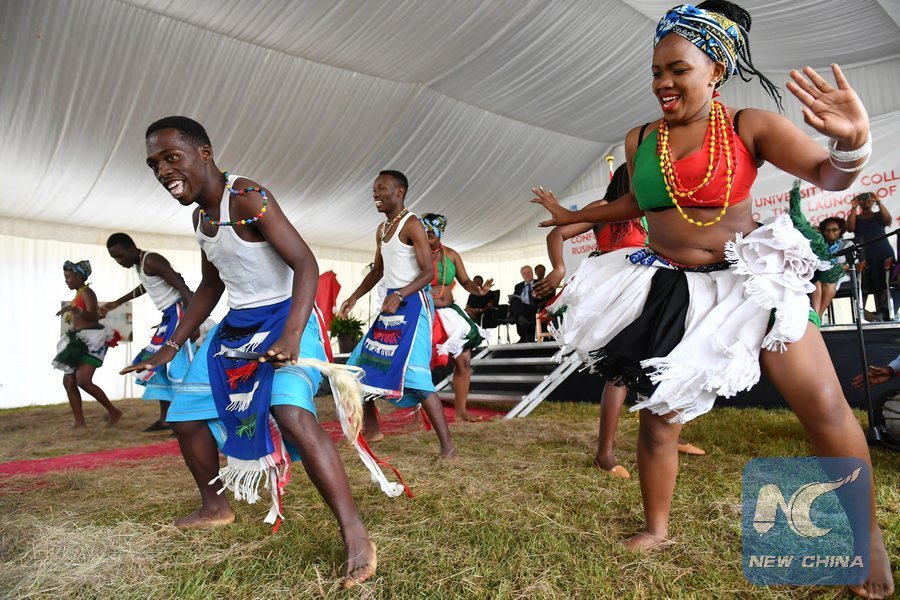
File photo shows students of Kenyatta University perform Rambolo dance during the unveiling ceremony of the Confucius Classroom at Rusinga School in Nairobi, Kenya, May 10, 2017. (Xinhua/Sun Ruibo)
KIGALI, June 28 (Xinhua) -- The World Health Organization (WHO) has called on African countries to act now to safeguard youth health by creating youth-friendly health services and encouraging healthy lifestyles.
"Africa has the advantage that as the world is getting older, our population is getting younger. There is so much potential to harness this vitality and energy to create health systems that suit all," said Matshidiso Moeti, WHO Regional Director for Africa at the first WHO Africa Health Fourm held in Kigali, capital city of Rwanda.
"But we need to act now to safeguard their health by creating youth-friendly health services and encouraging healthy lifestyles," she said.
"We want our youth to not just be beneficiaries of services, but to be with us at the decision-making table as we partner across sectors for a more prosperous, sustainable future for everyone in Africa," she added.
According to WHO, Africa is the only region in the world where the population as a whole is getting younger. People under the age of 18 make up 50 percent of the population in 15 countries in sub-Saharan Africa. However, HIV has disproportionately affected African children and adolescents. During the 30 years of the global HIV epidemic, around 17 million children have lost one or both parents due to AIDS -- 90 percent of these children live in sub-Saharan Africa.
In addition, the growth of non-communicable diseases (NCD) in Africa has seen a rise in NCD-related deaths of 27 percent over the last 10 years. If this growth continues, there will be an obvious knock-on effect on the health of young people in Africa, said WHO.
The first WHO Africa Health Forum on Tuesday kicked off to explore Africa's health care priorities and challenges and find new ways to achieve better health for all.
The two-day forum, hosted by WHO's Regional Office for Africa, is organized under the theme of "Putting People First: The Road to Universal Health Coverage in Africa."
The event will provide a platform to forge new partnerships for delivering universal health coverage and a mechanism for improving access to quality, affordable healthcare for all.
A series of programs related to health financing, digital health, global health security, health research and universal health coverage, will be held during the forum.

